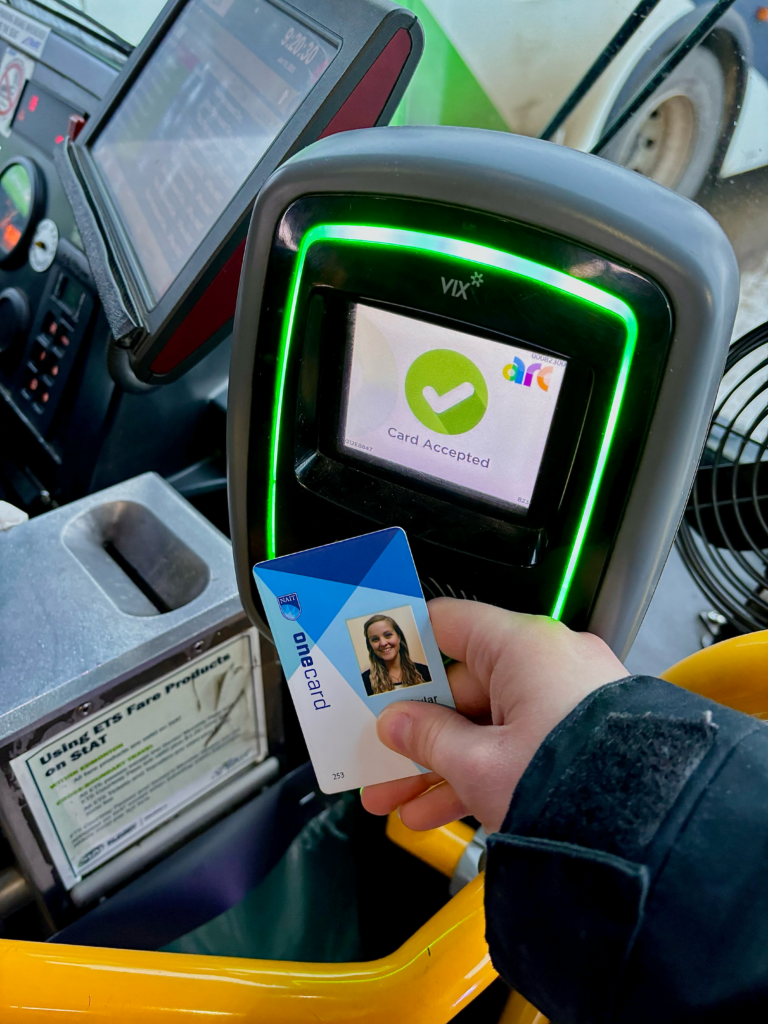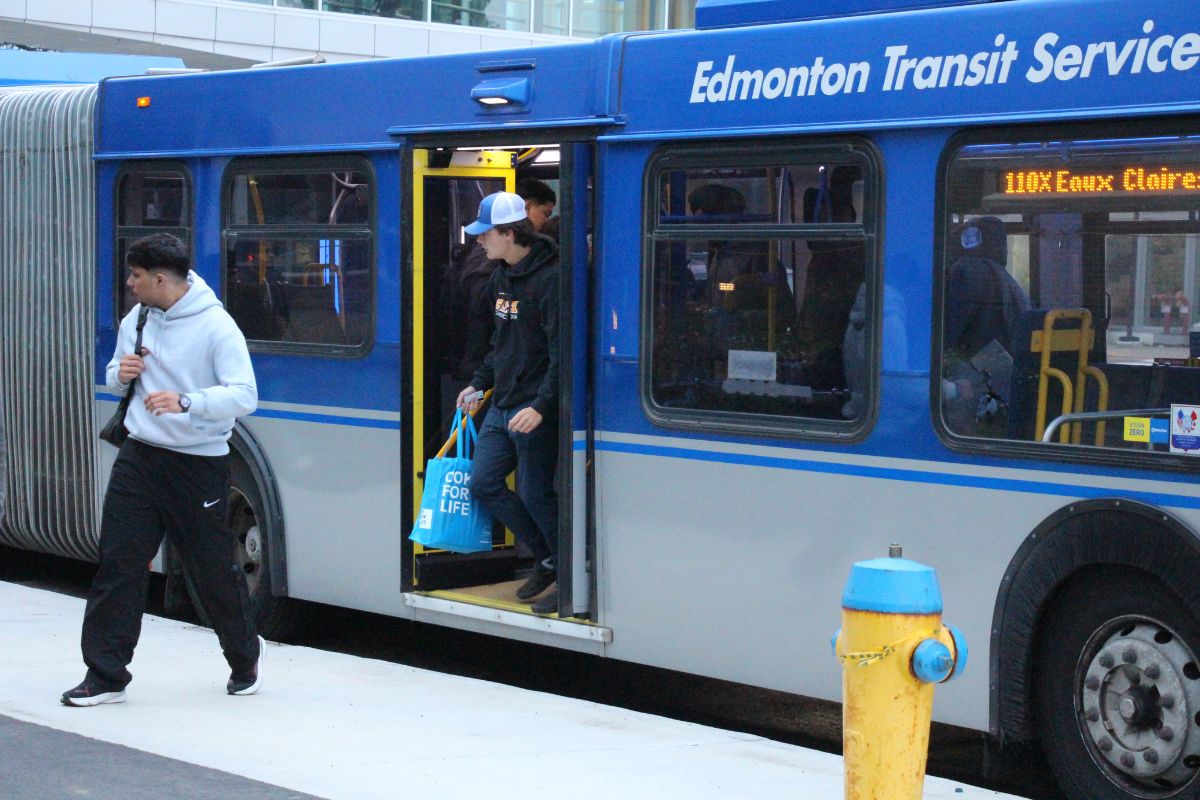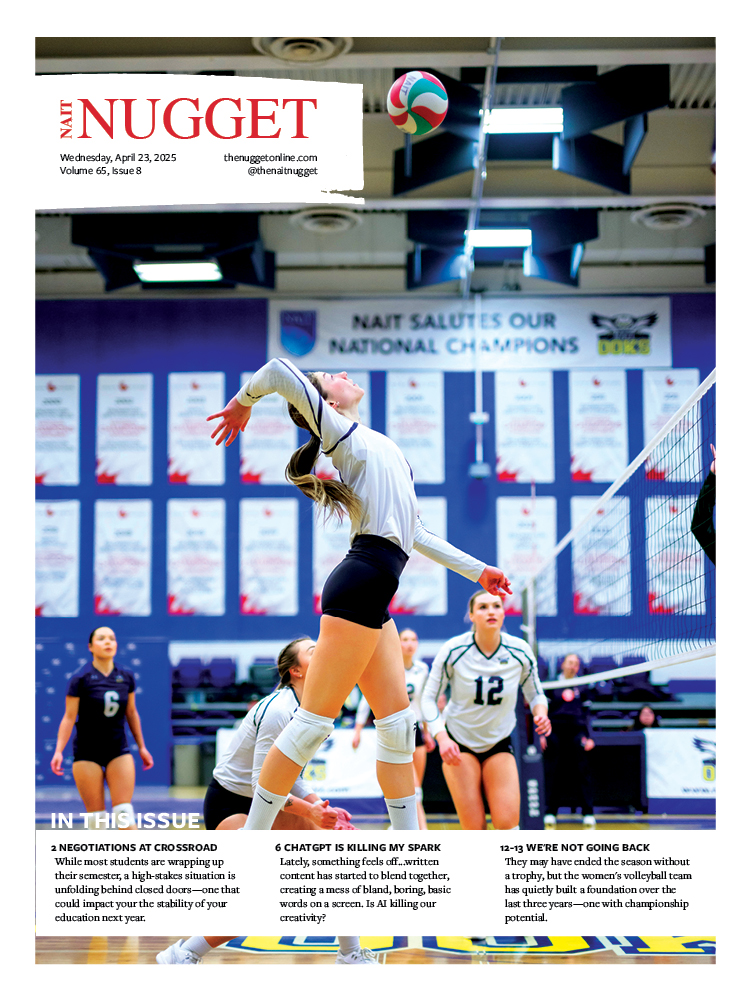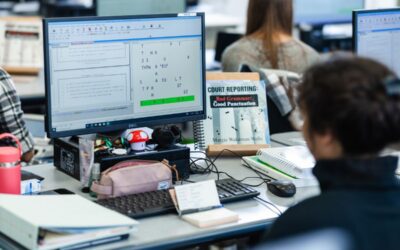Students will head to the polls in February to vote on a new U-Pass contract, as the current contract is expiring in August 2025. Jenna Luczak, NAITSA’s President, along with representatives from MacEwan, Norquest, Concordia and the University of Alberta, negotiated with the City of Edmonton over the summer to develop a new contract with students’ best interests in mind. Now, because the U-Pass is a mandatory fee, students will have the final say in a referendum. The results of the vote will determine if NAIT continues to have access to the discounted group transit pass or not.
Luczak and others began negotiating in the summer of 2024. At first, the city wanted to increase the cost of the U-Pass by five dollars each year. “So, instead of paying the regular $180 that we’re paying now, they wanted to raise it to $200 [by year four],” said Luczak. “We were able to negotiate them down to $180 for the first year, $182.50 for the second year and then $185 for year three.”
In past years, the U-Pass contract has been four years, but Luczak and the other schools wanted a shorter contract so that “we as students can monitor that the city is upholding their verbal promise to us,” Luczak explained. “We know that there’s issues with transit frequency, there’s issues with security and safety. So we want to make sure that students aren’t tied down for [a] longer period.”
According to the Edmonton Police in May 2024, between 2022 and 2023, crime severity rates in LRT stations or transit centres have decreased by 11.3 per cent, but calls for service to these locations have increased by 18.8 per cent. Luczak also shared that during negotiations, the city did address changes being made to improve safety on transit. “There are a lot more cameras and a lot more security improvements being worked on in the background.”
Students will vote in February during the NAITSA executive council election. To pass, two thirds of the students that vote must be in favour. According to Luczak, students have mixed feelings on the U-Pass.

“Some people love it, and some people hate it and don’t want to pay for it. But once we explain the concept of the universal transit pass is that everyone pays or no one pays, and if everyone pays, it subsidizes their peers, it makes it cheaper for those who actually need the transit, people are more likely to see the value in it.”
Whatever a student may feel about the U-Pass, Luczak encouraged students to vote. “We understand that money is very precious these days and it’s very hard to justify a $180 cost that you may not use, but it does subsidize your peers … but just stick to what you know, stick to what you value.”






